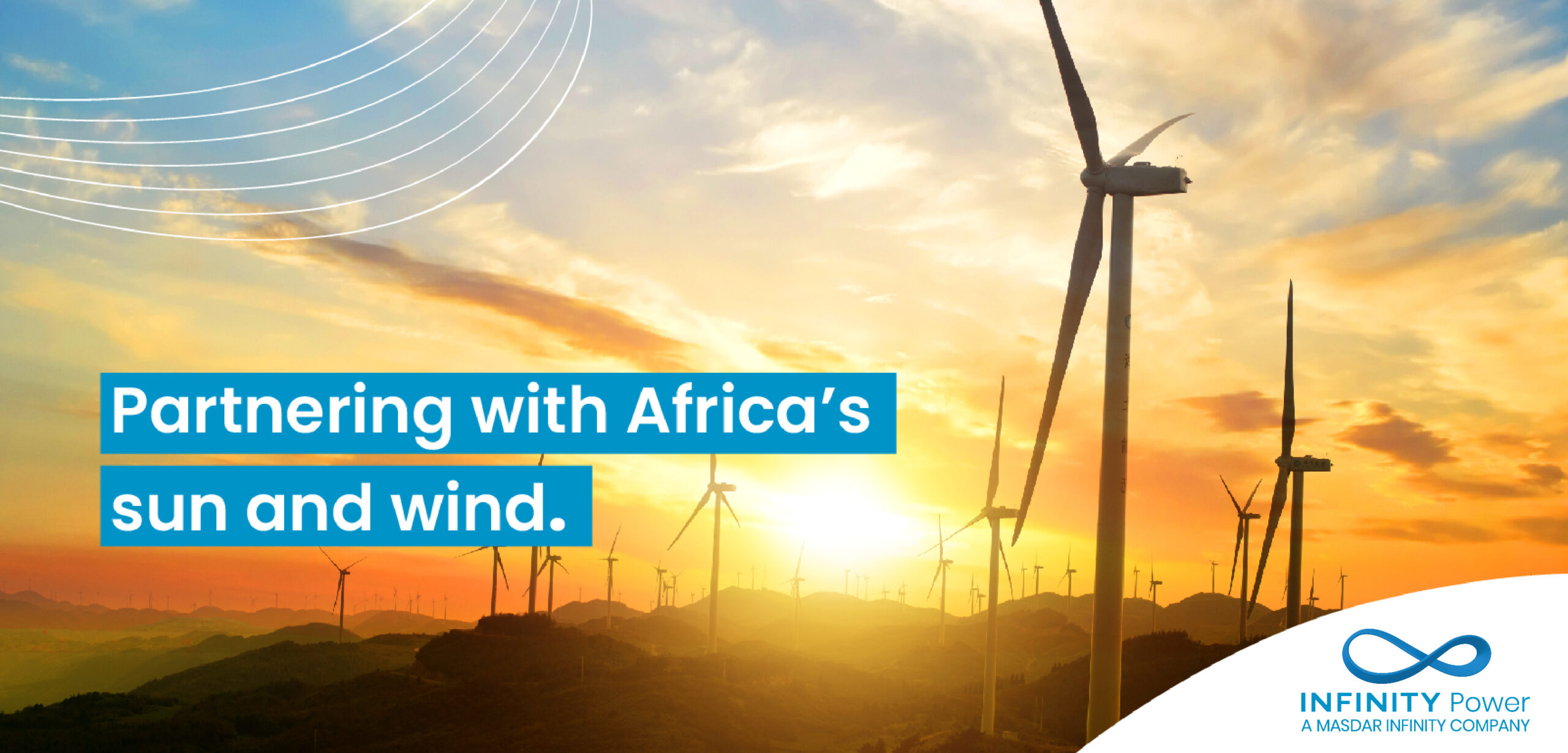- The second phase of KSA’s 1.5 GW Sudair solar plant begins operations. (Solar)
- We’re T-30 days away from COP28 and there’s still a lot left to be desired. (What We’re Tracking Today)
- Egypt wants to slash its fossil fuel dependence down to 55% by 2035. (What We’re Tracking Today)
- Iraq is courting bidders for its first WtE project. (Also on Our Radar)
- KSA’s Sabic Agri-Nutrients reports a 55% y-o-y dip in net income. (Earnings Watch)
- Seabex’s AI tackles irrigation and water conservation issues with the use of sensors. (Green Tech)
- The oil-rich seeds of Jatropha could prove to be a biofuels jackpot for Oman. (On Your Way Out)

Tuesday, 31 October 2023
The second phase of KSA’s 1.5 GW Sudair solar plant begins operations
TL;DR
WHAT WE’RE TRACKING TODAY
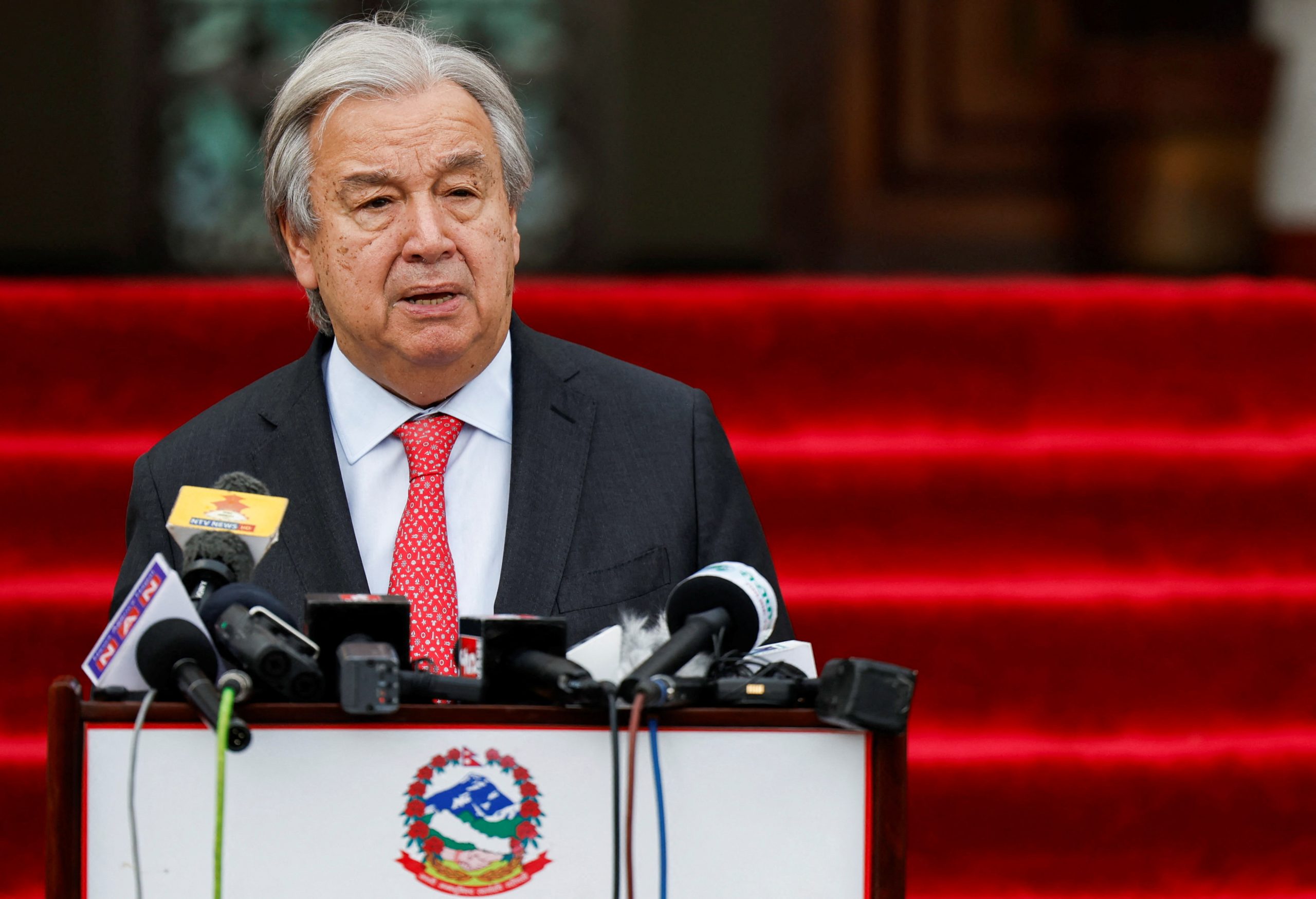
Good morning, friends. The news cycle is crawling along this week, but we have the latest on the two-day pre-COP underway in Abu Dhabi to sink our teeth into.
THE BIG CLIMATE STORY- Acwa Power’s 1.5 GW Sudair solar farm in Saudi Arabia has begun commercial operations on its second phase, bringing the operational capacity of the project up to 75%.
^^ We have the details on this story and more in the news well, below.
HAPPENING TODAY- The Financial Times’ Energy Transition Summit will kick off today in London and run through to Thursday. The summit will bring together senior leaders from the energy industry, as well as business and finance executives operating in carbon intensive sectors, to explore how to boost the energy transition while navigating today's geopolitical, technological, and financial challenges.
THE BIG CLIMATE STORY OUTSIDE THE REGION- A USD 1.3 bn package for US renewables-ready transmission lines: The US has committed USD 1.3 bn towards financing three power lines spanning six states from the west to the northeast of the country in a bid to prepare the country for the influx of renewable energy coming its way from renewables projects, according to a White House statement. The federal financing package will not be directly channeled toward construction of the transmission stations, but the US Department of Energy will direct the funds toward capacity contracts under a USD 2.5 bn bipartisan infrastructure law in a bid to de-risk investment for developers. The new transmission lines, which will extend to Canada, would allow an influx of some 3.5 GW from solar, hydroelectric, and wind power projects in Canada to the US. Despite the project’s potential, the US still needs to add about 30 GW in interregional power volume to meet its 100% clean electricity target for 2035.
The story got coverage in the international press: Reuters | New York Times | CNN | Bloomberg
SOUNDBITE OF THE WEEK- "I am here today to cry out from the rooftop of the world: stop the madness," Reuters reports UN Secretary-General Antonio Guterres as saying on the sidelines of a visit to Nepal’s Everest region to assess the impacts of the rapidly melting glaciers. The country had lost nearly a third of its ice in just over three decades, Guterres added while expressing concern over the diminishing icy reservoirs in the Himalayas which supply fresh water to over a bn people through river flows.
T-30 DAYS TO COP28- The two day pre-COP is in progress in Abu Dhabi: In his opening remarks to 70 ministers and 100 delegates from around the world, COP28 President-Designate Sultan Al Jaber reiterated some of the most important goals of the summit (defined by the presidency), which include: finding common ground on language for phasing out fossil fuel and increasing the renewables share in the energy mix; tackling adaptation finance gaps in vulnerable countries; and leveraging an adequate response to the Global Stocktake that addresses shortcomings in the global climate finance architecture. He also urged delegates to outline targets to triple renewables capacity by 2030 in a joint report with the International Renewable Energy Agency (Irena) and the Global Renewables Alliance, Reuters writes.
More about the report: The global production capacity from renewables must be tripled to reach up to 11 TW by 2030 to meet the Paris-agreed 1.5 °C warming threshold, according to the report. Key enablers will include scaling infrastructure like power grids and energy storage; improving energy efficiency, market incentives and fiscal policy; building resilient supply chains; scaling-up public and private finance; and boosting international collaboration. G20 countries — including top global emitters like China and the US — agreed last month to tripling their renewables production volume by the end of the decade in a bid to meet the warming limit, which is “more likely than not” to be breached by 2027, according to a World Meteorological Organization report in May.
What will it take to pull off a successful COP28? In a Global Strategic Communications Council (GSCC) media briefing attended by Enterprise Climate, climate experts laid out the key determinants for what they would consider a successful COP28 including the operationalization of the loss and damage fund, a clear target for fossil fuel phase-out, pushing countries to set more ambitious climate targets in their nationally determined contributions, and building a comprehensive adaptation framework.
Loss and damage talks may need a compromise: With regards to the contention over whether the loss and damage fund should be established as an independent body or hosted by the World Bank, lead climate finance negotiator for the Alliance of Small Island States (AOSIS) Michai Robertson said the multilateral lender may not be fit for providing green financing. He reasoned that the World Bank often views climate projects as too risky for investment, and its internal politics can hinder equal accessibility to funds. Vanuatu's Minister for Climate Change Ralph Regenvanu said that the Pacific Small Island Developing States (PSIDS) group will enter the fifth and last transitional committee meeting for the operationalization of the fund with a compromise proposal to have the fund established under the World Bank with specific conditions, and a clause that stipulates the committee can go back to the drawing board if goals are not achieved.
WATCH THIS SPACE #1- Egypt to reduce fossil fuel dependence to 55% by 2035: The Egyptian Electricity Holding Company aims to reduce fossil fuel dependence for electricity production to 55% by 2035, a source at the Ministry of Electricity told Enterprise Climate. Renewables will have a 40% share of electricity production while the remaining 5% will be provided by the Dabaa nuclear power plant.
Larger plans afoot: Egypt is embarking on a five-step plan to produce up to 1.4 GW from renewable sources by 2027, the source told us, without disclosing any more details. The country also plans to reduce the share of hydroelectric power to 2% as its units are becoming obsolete and require major investments, they added.
|
***
YOU’RE READING ENTERPRISE CLIMATE, the essential MENA publication for senior execs who care about the world’s most important industry. We’re out Monday through Thursday by 5am Cairo / 5am Riyadh / 6am UAE.
EXPLORE MORE OF ENTERPRISE ON THE WEB — tap or click here to read EnterpriseAM, EnterprisePM, and The Weekend Edition on our powerful new website packed with reader-friendly features.
Were you forwarded this email? Get your own subscription without charge here or reach out to us on climate@enterprisemea.com with comments, suggestions and story tips.
***
CIRCLE YOUR CALENDAR-
The UAE will host the Forbes Middle East Sustainability Leaders Summit from Wednesday, 1 November to Friday, 3 November in Abu Dhabi. The summit will gather international leaders in sustainability, technology, finance, and policy to drive green strategies globally. The agenda includes sessions on climate-smart cities, green mobility, sustainable finance, and sustainable tourism. The summit is expected to set the tone for international and regional dialogue and decision-making, including COP28 which will kick off in late November.
Turkey will host the GCC-Türkiye Economic Forum from Saturday 11 November to Monday, 13 November in Istanbul. The forum aims to bring together key ministers and state officials from the Gulf countries and Turkey to explore areas of potential investments and commercial ties and to establish a network for joint projects in the energy, defense, banking, retail, and transportation sectors. The event is organized by the Gulf Research Center and Turkey’s International Cooperation Platform.
The UAE will host the MENA Solar Conference from Wednesday, 15 November to Saturday, 18 November in Dubai. The event will focus on all things photovoltaic, with a full programme on PV materials and devices, future technologies, PV reliability, and forecasting for performance assessment. The conference will also touch on how developments in system operations, concentrated solar power, and grid integration are necessary for the green transition. This will be the first scientific and technical conference specializing in solar energy systems in the region.
Check out our full calendar on the web for a comprehensive listing of upcoming news events, national holidays and news triggers.
SOLAR
The second phase of KSA’s 1.5 GW Sudair solar plant begins operations
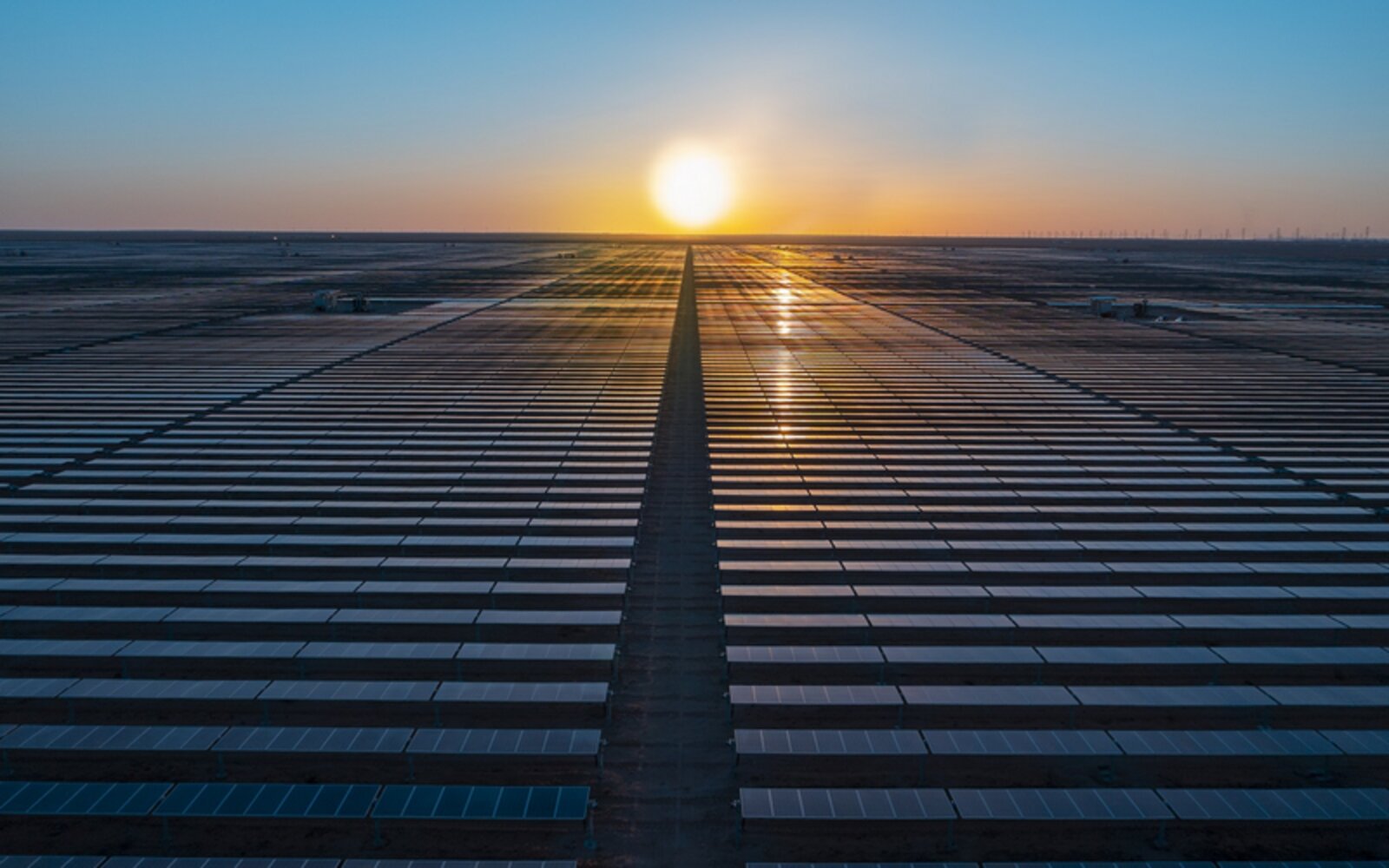
75% of KSA’s 1.5 GW Sudair solar project is now operational: Another 25% of Acwa Power’s 1.5 GW Sudair solar PV in Saudi Arabia has begun commercial operations after the Saudi Power Procurement Company (SPPC) granted Acwa Power an Initial Commercial Operation certificate for the second phase of the project, according to a disclosure to Tadawul. The approval comes less than a month after Acwa Power started operating the first phase of the Sudair plant, which represented 50% of the total capacity. The company expects the impact of the 1.125 GW currently in operation to be reflected in its 4Q financial statements. No details on the timeline of the last phase were mentioned in the disclosure.
About Sudair: The project is set to become one of the largest single-contracted solar PV plants globally and the largest of its kind in Saudi Arabia. It is the first project under the Saudi sovereign wealth fund’s renewable energy program, and has recorded the second-lowest cost globally for solar PV electricity production at USD 1.239 cents/kwh. Once fully operational, the renewable energy program aims to deliver 70% of the kingdom’s renewable energy goals, according to Acwa Power. Acwa Power and Water and Electricity Holding Company (Badeel) each hold a 35% stake in Sudair, and an Aramco subsidiary owns the remaining 30%.
ALSO- Acwa intends to launch large projects in China in 1Q 2024: Acwa power is planning to officially kick start its largest China operations next quarter, building on previous purchases from China of products worth USD 30 mn in the energy, water, and green hydrogen sectors, Vice Chairman and Managing Director of the Saudi company Raad Al-Saadi told CNN Business Arabic.
GREEN TECH
Seabex’s AI tackles irrigation and water conservation issues with the use of sensors
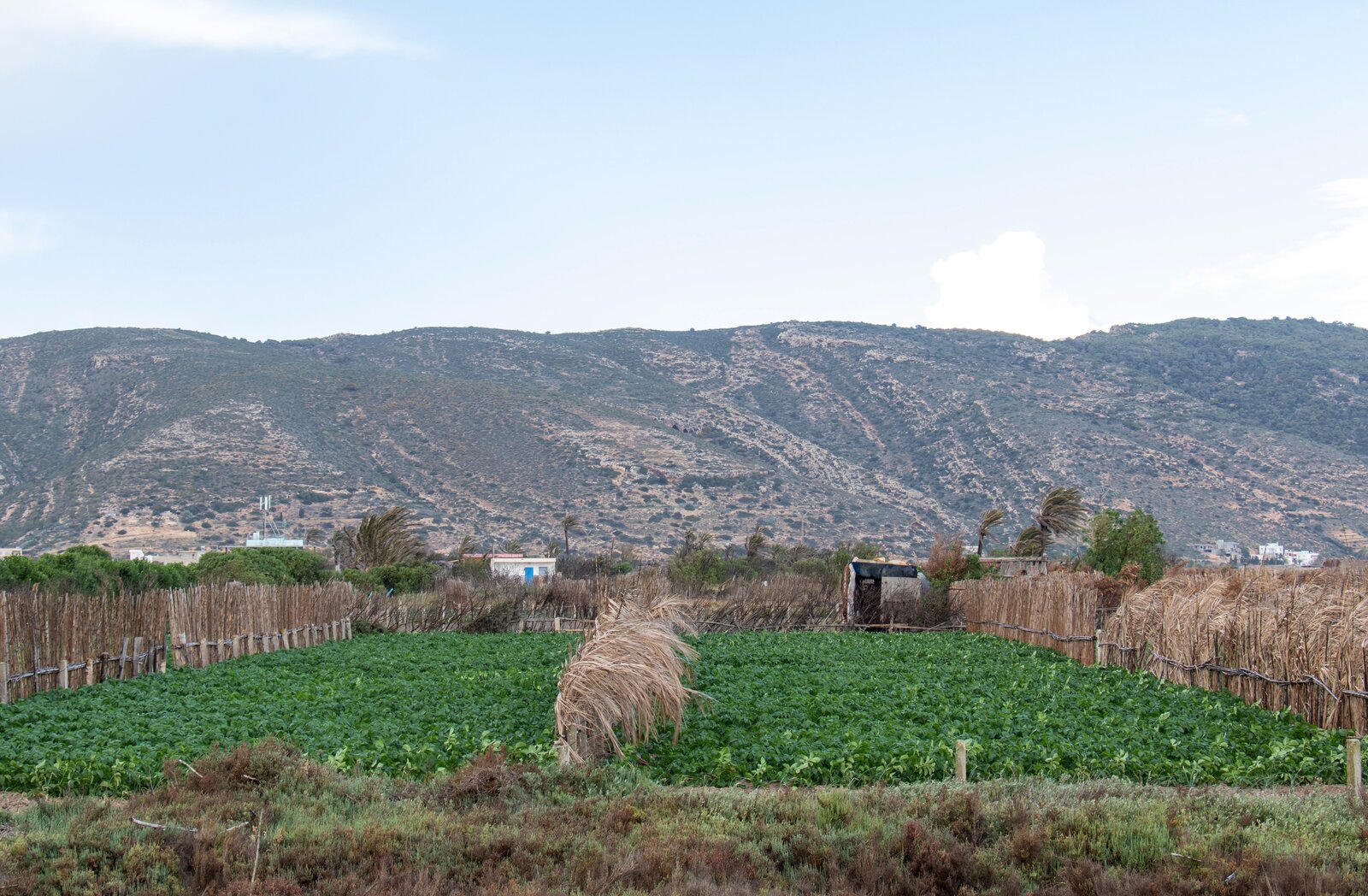
Seabex helps farmers manage daily operations in the face of climate change: Agritech startup Seabex — based in France and Tunisia — has developed a remote, AI-based irrigation monitoring and control system using sensors to improve irrigation and conserve water through personalized insights in real-time, according to their LinkedIn. Seabex’s system can fully automate operations like irrigation and fertigation, while taking into account plot-specific data, the surrounding climate, and the varieties of plants the farmer wants to grow. It can also measure the impact and evolution of its suggested methods in order to continually adjust to changes in the weather or soil. The company currently works in Europe, the Middle East, and Africa to provide resource-efficient irrigation recommendations without having to impose sensor data costs.
About Net-irrig by Seabex: Seabex also offers a Software as a Service service to farmers, who can access data and recommendations on their smartphones or computers. Net-irrig is a scalable and easy-to-use irrigation decision support tool developed by Seabex, according to the company website. The tool can monitor all irrigated plots in addition to 140 varieties which include field crops, canned vegetables, arboriculture and vineyards, to then provide personalized support, assistance, training from specialized advisors from the chambers of agriculture, all through a “simple and intuitive” interface which is accessible from anywhere, an is soon to be launched as an application. The suggestions can help farmers get a better yield and optimize water resources.
The idea was born from crop loss driven by increased droughts: Seabex farmer Amira Cheniour got the Seabex idea during a trip to southern Tunisia, where she met a farmer who lost a large part of his date crop to drought, she told We Are Tech Africa.
Tunisia’s drought is expected to become worse over time: Tunisia recorded the highest maximum temperatures on record, reaching 49.0°C, on June 23. This poses a sign of much hotter summers to come, which poses a sign of much hotter summers to come, Reuters said at the time. During COP27 last year, the North African country was singled out by the International Financial Corporation for being particularly at risk of worsening food security as the multilateral lender launched the USD 6 bn global food security platform.
Seabex has backing from EBRD: In April, Seabex was the third runner-up of the European Bank for Reconstruction and Development’s (EBRD) AgVenture competition for food-tech start-ups. They received up to EUR 50k worth of tailored advisory service and a further EUR 10k grant.
There’s a growing demand for climate adaptation tech: As we enter into the El Nino warming phase of the larger El Niño-Southern Oscillation (ENSO) weather pattern, North Africa and Nile Basin countries are expected to face major challenges in managing extreme drought conditions. Morocco and its neighboring countries have already had to impose rations on the nation’s water consumption for example. Adaptation measures to counteract the effects of drought could include developing new agriculture strategies to prioritize growing crops with less water requirements, transitioning to modern irrigation methods to save on water consumption, and introducing crops that can handle a higher salinity, climate researcher at the International Centre for Theoretical Physics Muhammad Abid told Enterprise Climate earlier this year.
EARNINGS WATCH
KSA’s Sabic Agri-Nutrients reports a 55% y-o-y dip in net income
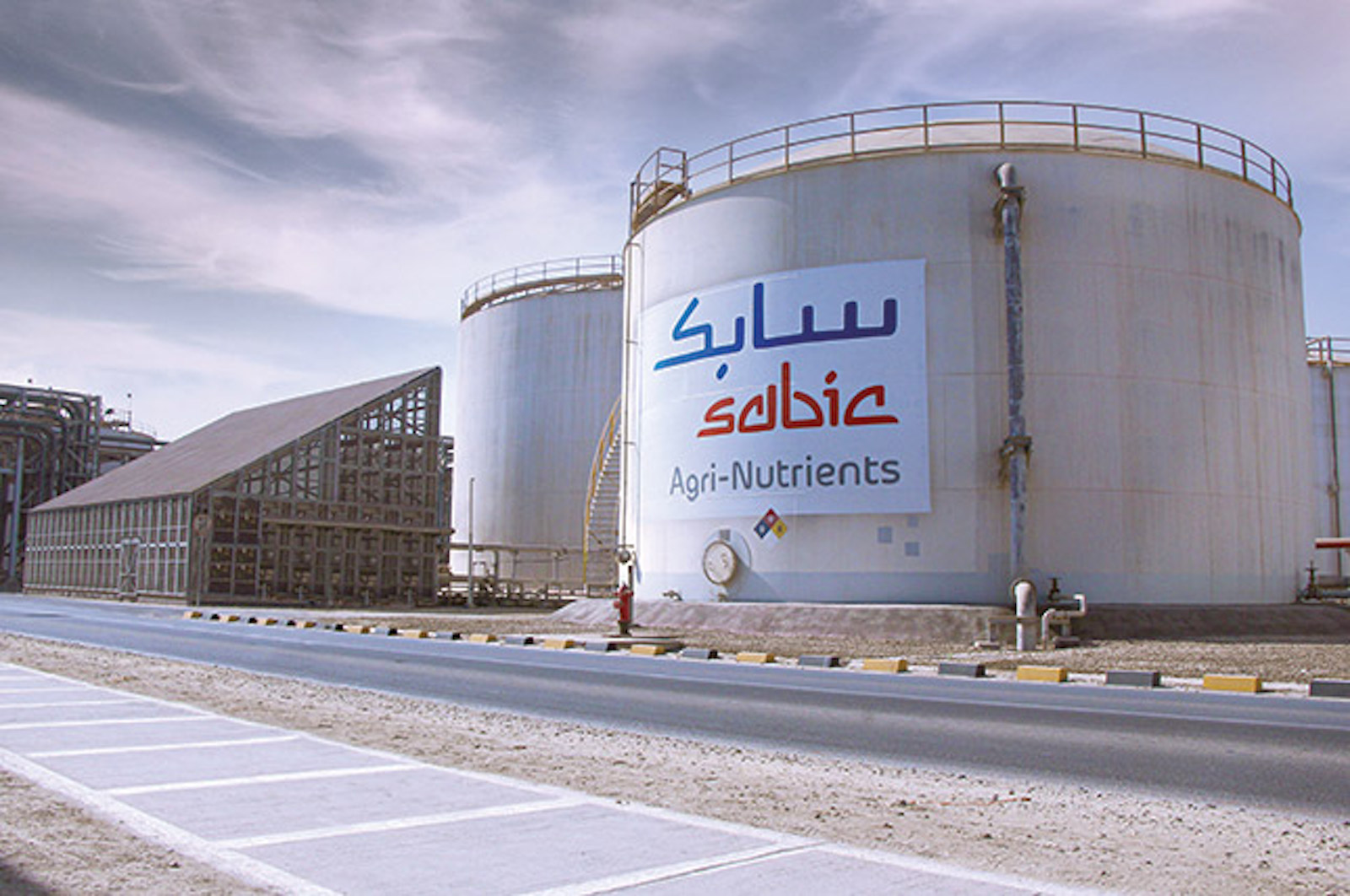
KSA’s Sabic Agri-Nutrients reports a y-o-y dip in 3Q: Saudi chemicals manufacturer Sabic Agri-Nutrients reported a 55% decrease in net income y-o-y to SAR 1.04 bn, according to an 3Q 2023 earnings release (pdf). The company’s revenues also dipped 40% y-o-y to SAR 2.67 bn.
What’s behind these numbers? The y-o-y downtick is attributable to a 43% drop in average selling prices of the company's products despite a 6% increase in the quantity of the company's sold products, Sabic notes.
A slightly better 3Q compared to 2Q: The company saw a 2% increase in net income q-o-q due to a 5% increase in average selling prices of company products, compared to the 3% sales volume decrease in 2Q, the firm said.
Q4 outlook: “Resilient global demand and higher-cost winter-time energy supply together with lower-than anticipated Chinese export volumes lend support to the urea market in 4Q 2023,” the company notes, adding that “healthy demand from major importers in the Americas, Africa, and Europe ahead of the new-crop planting season” would lead to an uptick in its production volumes.
ALSO ON OUR RADAR
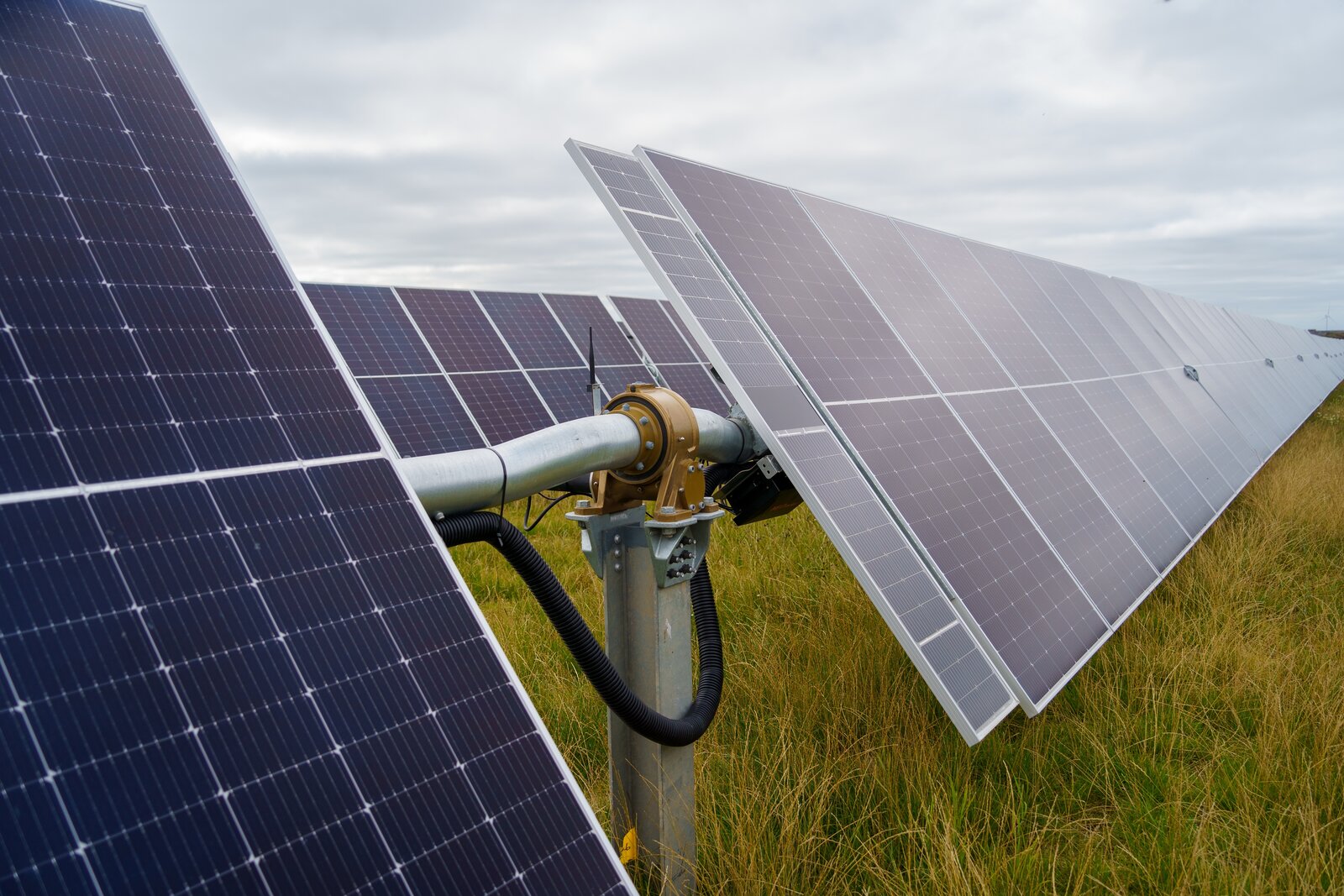
AGRICULTURE-
Jordanian farmers get more solar power: Jordan signed an agreement with the Agricultural Credit Corporation and the Jordan Renewable Energy and Energy Efficiency Fund (JREEEF) to support the second phase of a program that installs solar panels for farmers, according to a statement. The JOD 1.1 mn (USD 1.6 mn) program will be provided by the Agricultural Credit Corporation and the Jordan Renewable Energy and Energy Efficiency Fund (JREEEF) will cover the loans' interests. It will also see agricultural production and power costs cut for small farmers in a push to improve exports and achieve sustainable farming.
The second time around: The JOD 2 mn first phase of the program saw the installation of solar panels for 172 farms across the kingdom, the statement notes. JREEEF paid the interest on the first phase’s loans at a rate of 3.5%.
WASTE-TO-ENERGY-
Iraq is courting bidders for its first WtE project: Iraq’s National Investment Commission (NIC) is inviting potential investments in the country's first waste-to-energy (WtE) project in the Rusafa region, according to a statement. NIC consultant Mona Al-Jabri presented modules of renewable energy projects, types and standards of WtE projects, and technical and engineering details for the project. Baghdad produces around 9.5k tons of waste daily which will need to be processed through "sustainable environmental projects," the statement notes. Companies have a month to submit their bids for the project, Zawya reports, citing a local Iraqi news outlet.
A regional WtE push: Oman has been capitalizing on its WtE potential by studying the feasibility of producing biogas from wastewater sludge as a promising waste-to-energy, and the UAE has a mega 900k ton capacity greenfield WtE IPP facility under development in Abu Dhabi. Egypt also recently inked a USD 120 mn agreement with a consortium led by Renergy Egypt to design, build, own, and operate its new waste-to-energy factory in Abu Rawash city.
CARBON CAPTURE-
UAE wants Indonesian participation on renewables: The CEO of the Dubai Water and Electricity Authority Saeed Al Tayer met with Indonesia’s Ambassador to the UAE Husin Bagis and Indonesian climate tech firm Fairatmos to explore potential development and cooperation avenues for decarbonization, Wam reports.
REMEMBER- The UAE’s Masdar signed an agreement with Indonesia’s utility company PLN Nusantara Power to develop a 500 MW floating solar photovoltaic plant (FPV) in Indonesia last month. Earlier in February, Masdar acquired shares in the geothermal unit of Indonesian government-owned geothermal utility Pertamina, which controls 82% of Indonesia's installed geothermal energy capacity and manages 13 geothermal energy projects generating 1.87 GW of electricity.
ON YOUR WAY OUT
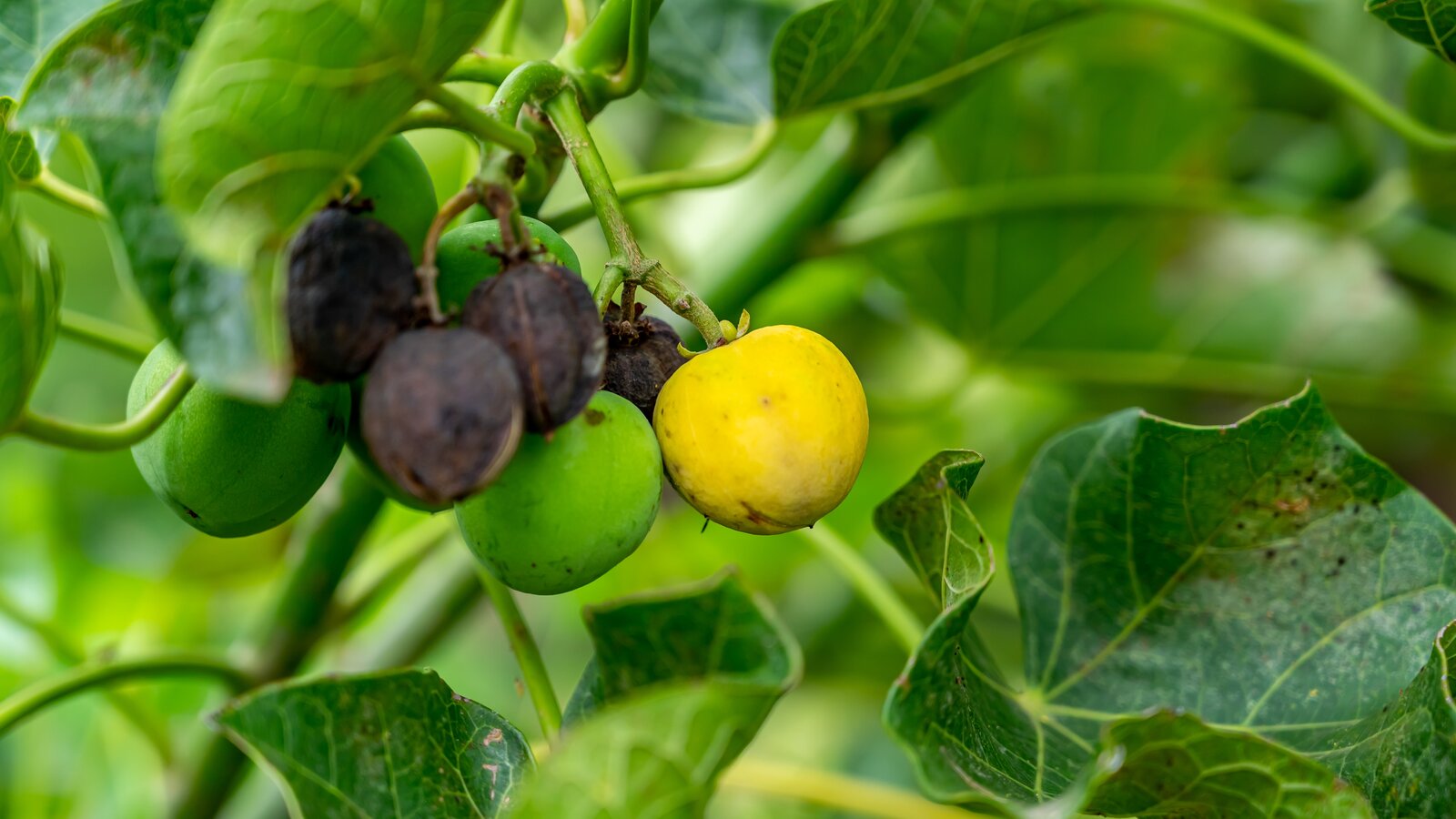
The oil-rich seeds of the Jatropha plant can support large-scale production of biofuels if farmed extensively, the Oman Observer reports, citing a new study by Sultan Qaboos University (SQU). The plant can be cultivated as feedstock for fuel, then integrated into sustainable aviation fuel (SAF).
What is Jatropha? Jatropha Cucras Linnaeus is a species of flowering plant native to the American tropics. Its seeds contain up to 40% oil and can produce bioethanol and biodiesel, the news outlet reports, and can prevent soil erosion thereby increasing wasteland soil fertility. The cultivation of Jatropha is already being adopted globally, especially in India and China, for various uses including the production of biofuels.
Oman-ready: The Jatropha is well-suited for Oman’s climate as it is a drought and pest-resistant plant, with the ability to survive in arid weather conditions. "When the seeds are processed, the resulting oil can be used in a standard diesel engine, while the residue can also be processed into biomass to power electricity plants," SQU lead researcher Ahmed Al-Busaidi told the news outlet. Jatropha farming can also help mitigate emissions and earn carbon credits as it absorbs large amounts of CO2 from the atmosphere.
The sultanate has big green mobility plans: Oman plans to fully decarbonize its mobility sector by 2050 through an ambitious three-phase plan, including the promotion of biofuels use in its first phase.
CALENDAR
OCTOBER 2023
29-31 October (Sunday-Tuesday): Egypt Energy Conference, Egypt International Exhibition Centre, Cairo, Egypt.
29 October-2 November (Sunday-Thursday): Cairo Water Week, Cairo, Egypt.
30 October-2 November (Monday-Thursday): International Solar Alliance Assembly, New Delhi, India.
31 October-2 November (Tuesday-Thursday): Financial Times’ Energy Transition Summit, London, UK.
31 October-2 November (Tuesday-Thursday): World Hydropower Congress, Bali, Indonesia.
NOVEMBER 2023
1-3 November (Wednesday-Friday): Forbes Middle East Sustainability Leaders Summit 2023, Abu Dhabi, UAE.
7-8 November (Tuesday-Wednesday): ADIA Lab Symposium on Climate Change and Health Sciences, Abu Dhabi, UAE.
9-10 November (Thursday-Friday): International Renewable Energy Agency Investment Forum, Uruguay.
9-15 November (Thursday-Wednesday): Intra-African Trade Fair 2023, Cairo, Egypt.
11-13 November (Saturday-Monday): GCC-Türkiye Economic Forum, Istanbul, Turkey.
15-17 November (Wednesday-Friday): WETEX and Dubai Solar Show, Dubai, UAE.
15-18 November (Wednesday-Saturday): DEWA’s First MENA Solar Conference, Dubai, UAE.
20-24 November (Monday-Friday) Aviation and Alternative Fuels conference, Dubai, UAE.
27-30 November (Monday-Thursday) Abu Dhabi Finance Week (ADFW), Abu Dhabi, UAE.
28-29 November (Tuesday-Wednesday): World Green Economy Summit (WGES), Dubai, UAE.
30 November – 12 December (Thursday-Tuesday): Conference of the Parties (COP 28), Dubai, UAE.
DECEMBER 2023
4 December (Monday): Saudi Green Initiative Forum, Dubai, UAE.
4 December (Monday): Abu Dhabi Sustainability Week (ADSW) summit, Dubai, UAE.
4-7 December (Monday-Thursday): International Conference on Global Warming, Ras Al Khaimah, UAE.
6-7 December (Wednesday-Thursday): Reuters’ Energy Transition MENA conference, Dubai, UAE.
7-8 December (Thursday-Friday): Future Investment Initiative (FII) Priority, Hong Kong.
8 December (Friday): Youth for Sustainability Forum (Y4S), Dubai, UAE.
12-14 December (Tuesday-Thursday): Green Hydrogen Summit Oman, Oman Convention and Exhibition Center, Muscat, Oman.
18-20 December (Monday-Wednesday): Saudi Arabia Smart Grid Conference, Hilton Riyadh Hotel & Residences, Riyadh, Saudi Arabia.
JANUARY 2024
9-11 January (Tuesday-Thursday): Future Minerals Forum, Riyadh, Saudi Arabia.
FEBRUARY 2024
26-28 February (Monday-Wednesday): Management and Sustainability of Water Resources, Dubai, UAE.
MARCH 2024
4-6 March (Monday-Wednesday): International Conference on Sand and Dust Storms in the Arabian Peninsula, Riyadh, Saudi Arabia.
APRIL 2024
16-18 April (Tuesday-Thursday): World Future Energy Summit, Abu Dhabi, UAE.
23-25 April (Tuesday-Thursday): Connecting Green Hydrogen MENA, Dubai, UAE.
MAY 2024
19-21 May (Sunday-Tuesday): Saudi Energy Convention, Riyadh, KSA.
JUNE 2024
5 June (Wednesday): World Environment Day, Saudi Arabia.
OCTOBER 2024
10-12 October (Tuesday-Thursday): Autonomous E-Mobility Forum, Doha, Qatar.
DECEMBER 2024
2-13 December (Monday-Friday): Conference of the Parties (COP16) to the United Nation Convention to Combat Desertification, Riyadh, KSA.
EVENTS WITH NO SET DATE
2024
Early 2024: The 2023 US Algeria Energy Forum, Washington DC, USA.
12-14 February (Monday-Wednesday): Sustainable Aviation Futures MENA Congress, Dubai, UAE.
End-2024: Emirati Masdar’s 500 MW wind farm in Uzbekistan to begin commercial operations.
QatarEnergy’s industrial cities solar power project will start electricity production.
2025
International Union for Conservation of Nature World Conservation Congress, Abu Dhabi, UAE.
UAE to have over 1k EV charging stations installed.
2026
UITP Global Public Transport Summit, Dubai, UAE.
1Q 2026: QatarEnergy’s USD 1 bn blue ammonia plant to be completed.
End-2026: HSBC Bahrain to eliminate single-use PVC plastic cards.
2027
MENA’s district cooling market is expected to reach USD 15 bn.
2030
UAE’s Abu Dhabi Commercial Bank (ADCB) wants to provide AED 35 bn in green financing.
UAE targets 14 GW in clean energy capacity.
Tunisia targets 30% of renewables in its energy mix.
Qatar wants to generate USD 17 bn from its circular economy, creating 9k-19k jobs.
Morocco’s Xlinks solar and wind energy project to generate 10.5 GW of energy.
2035
Qatar to capture up to 11 mn tons of CO2 annually.
2045
Qatar’s Public Works Authority’s (Ashghal) USD 1.5 bn sewage treatment facility to reach 600k cm/d capacity.
2050
Tunisia’s carbon neutrality target.
2060
Nigeria aims to achieve its net-zero emissions target.
Enterprise Climate is available without charge thanks to the generous support of HSBC (tax ID: 204-901-715), the leading corporate and retail lender in Egypt; and Infinity Power (tax ID: 305-170-682), the leading generator and distributor of renewable energy in Africa and the Middle East. Enterprise Climate is delivered Mon-Thurs before 4 am UAE time. Were you forwarded this copy? Sign up for your own delivery at climate.enterprise.press. Contact us on climate@enterprisemea.com.


